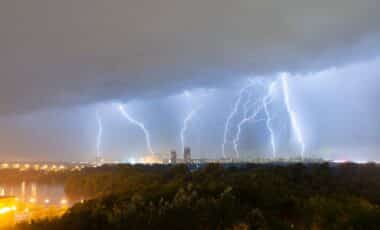The UK is increasingly likely to experience record-breaking heatwaves in the coming decades, with the chances of temperatures exceeding 40°C within the next 12 years estimated at 50%.
A new report from the Met Office warns of significant changes in the country’s climate, with some areas potentially facing month-long periods of extreme heat as the effects of climate change take hold.
Increased Likelihood of 40°C Days
According to the Met Office, the chance of the UK surpassing the 40°C mark has increased significantly in recent years. The analysis reveals that the likelihood of exceeding 40°C has risen twenty-fold since the 1960s and tripled since 2000.
The report also projects a 50% chance of experiencing a day above 40°C in the next 12 years, with temperatures of 45°C or higher also considered possible within the same timeframe. This sharp increase is primarily attributed to the ongoing rise in global temperatures, driven by human activity and climate change.
In 2022, the UK saw its first-ever temperature exceeding 40°C when Coningsby in Lincolnshire reached 40.3°C. This marked a turning point for the country, signaling that extreme heat is no longer a rare occurrence but a growing concern for public safety and environmental stability.
The Met Office’s study uses advanced climate models to assess how such extreme conditions might become more common in the future, stressing the need for urgent action to prepare for a hotter climate.
Longer and Hotter Heatwaves Ahead
The Met Office’s analysis also reveals that the length and intensity of heatwaves in the UK are expected to increase. The study predicts that regions, particularly in the south-east of England, could see periods of extreme heat lasting up to a month or more, far longer than the heatwaves experienced in previous decades.
The report cites the heatwave of 1976, which saw temperatures above 28°C for over two weeks, as a historical benchmark. However, today’s climate conditions suggest that such events could stretch well beyond that timeframe in the near future.
Experts emphasize that the prolonged nature of these heatwaves will bring more significant challenges, particularly in terms of managing energy resources, protecting vulnerable populations, and safeguarding the environment. The need for climate adaptation strategies, including resilient infrastructure and public health initiatives, has never been more pressing.
The Met Office’s warning serves as a call to action for both government authorities and individuals, urging a proactive approach to mitigate the impacts of the climate crisis.









